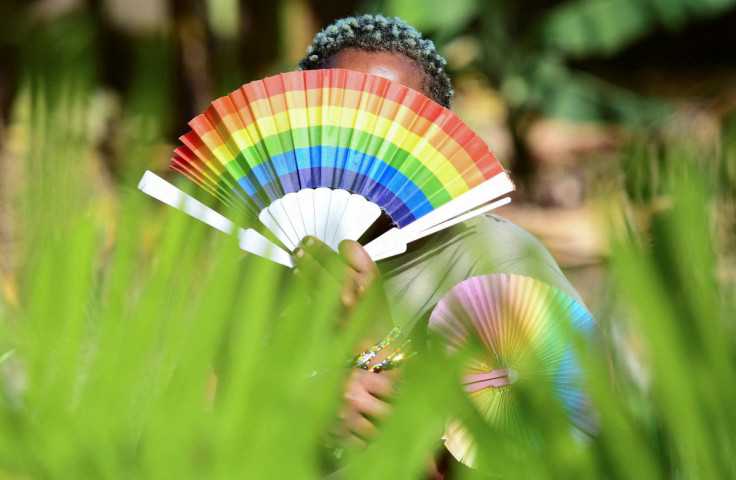Nigeria To End 'Gay Wedding' Witch Hunt Says Amnesty International
Police continue to search for the missing man after more than 70 people were arrested and accused of attending a "gay party" and planning a "gay wedding" in Nigeria.

Yesterday, Wednesday 26 October, the world's leading human rights organisation Amnesty International, called for the Nigerian authorities to end its witch hunt of "gay wedding" guests.
The call for justice comes after the Nigerian Security and Civil Defence Corp (NSCDC) arrested 59 men and 17 women who were gathering in Gombe, a northern state in Nigeria.
The arrests were made on Saturday 21 October and saw the group of people accused of attending a "gay party" and making plans to hold a "gay wedding" at a later date.
The group of 76 people were taken into custody after Nigeria's paramilitary officers raided a birthday party.
Two of the guests were accused of planning their "gay wedding", which resulted in one of them being arrested and one of them fleeing the area.
While the other man is still at large, Nigeria Police have continued to search for the missing suspect and husband-to-be.
The arrests mark the most recent arrest that targeted members of the LGBTQ+ community in Nigeria since the police arrested more than one hundred people who were allegedly attending a gay wedding in Warri - a southern Delta state.
According to the authorities in Nigeria, the group of party-goers confessed to planning a "gay wedding", which violates the Same-Sex Marriage (Prohibition) Bill that was passed on 7 January 2014.
Although the bill was met with international condemnation, the legislation was signed and criminalised same-sex relationships and public displays of affection between homosexual couples.
The bill also restricts the work of activists and charities who defend the rights of the LGBTQ+ community.
In a statement, Isa Sanusi, the Director of Amnesty International Nigeria, said: "We unreservedly condemn these blatantly discriminatory arrests and call for the immediate release of all involved."
"The Nigerian authorities must stop these humiliating raids and misusing laws to harass and arrest people accused of same-sex activity," she said.
🇳🇬 Police arrest hundreds at gay event in Nigeria
— {Matt} $XRPatriot (@matttttt187) August 31, 2023
Police in Nigeria say they have arrested about 200 gay men at an event in southern Delta state.
Sixty-seven of them will now be charged after investigations.
Most of the men who were paraded in front of journalists on Tuesday… pic.twitter.com/vjxs2peoVW
Buhari Saad, the Nigeria Security and Civil Defence Corps (NSCDC) spokesperson for the Gombe state, said that after they had received a tip-off from an anonymous source, the agency raided the party to track down the "homosexuals and pimps".
In regard to the police force arresting the group based on little-to-no evidence, Sanusi added: "It is appalling that the police can arbitrarily bring criminal charges against people based on judgements of how they are dressed or how they have styled their hair."
After the arrests, Saad argued that out of the 59 men who were arrested, 21 of them were "wilfully confessing being gay".
The anti-gay law in Nigeria sets out to punish anyone who "registers, operates, or participates in gay clubs, societies, and organizations" and can result in homosexual members of the LGBTQ+ community being slammed with up to 14 years imprisonment.
Twelve northern regions in Nigeria have adopted a form of Sharia law, which allows for same-sex relations punishable by death.
Sanusi concluded his Amnesty International statement by urging the Nigerian government to focus on bigger issues occurring in the nation.
"No one should be targeted and arrested because of their actual or perceived sexual orientation and gender identity. The Nigeria Police should be prioritizing keeping everyone safe, not stoking more discrimination," he ordered.
During the first half of 2022, Nigeria saw an increase in violence that targeted civilians around the country.
The violence, particularly conducted by the Boko Haram insurgency, also considered a terrorist group, has resulted in more than two million people being displaced and has created a humanitarian crisis.
The lack of stability in Nigeria has also sourced the rise of civilian self-defence groups and freedom fighters that threaten national security and politics.
Women, girls and the LGBTQ+ community often face the brunt of the conflict, with Boko Haram being notorious for kidnappings and turning people into suicide bombers.
© Copyright IBTimes 2025. All rights reserved.






















